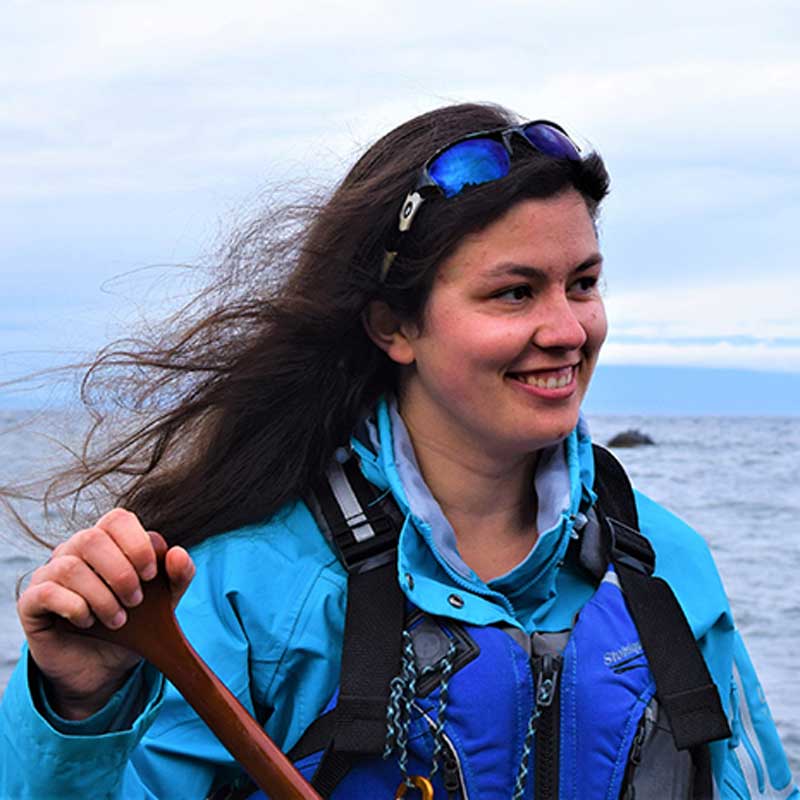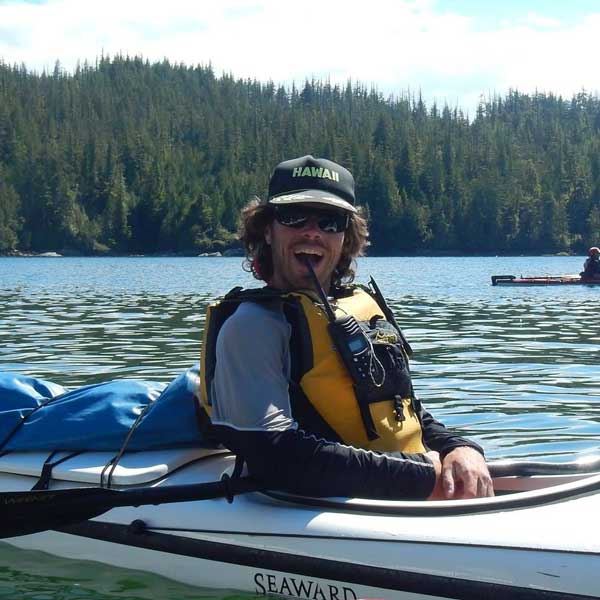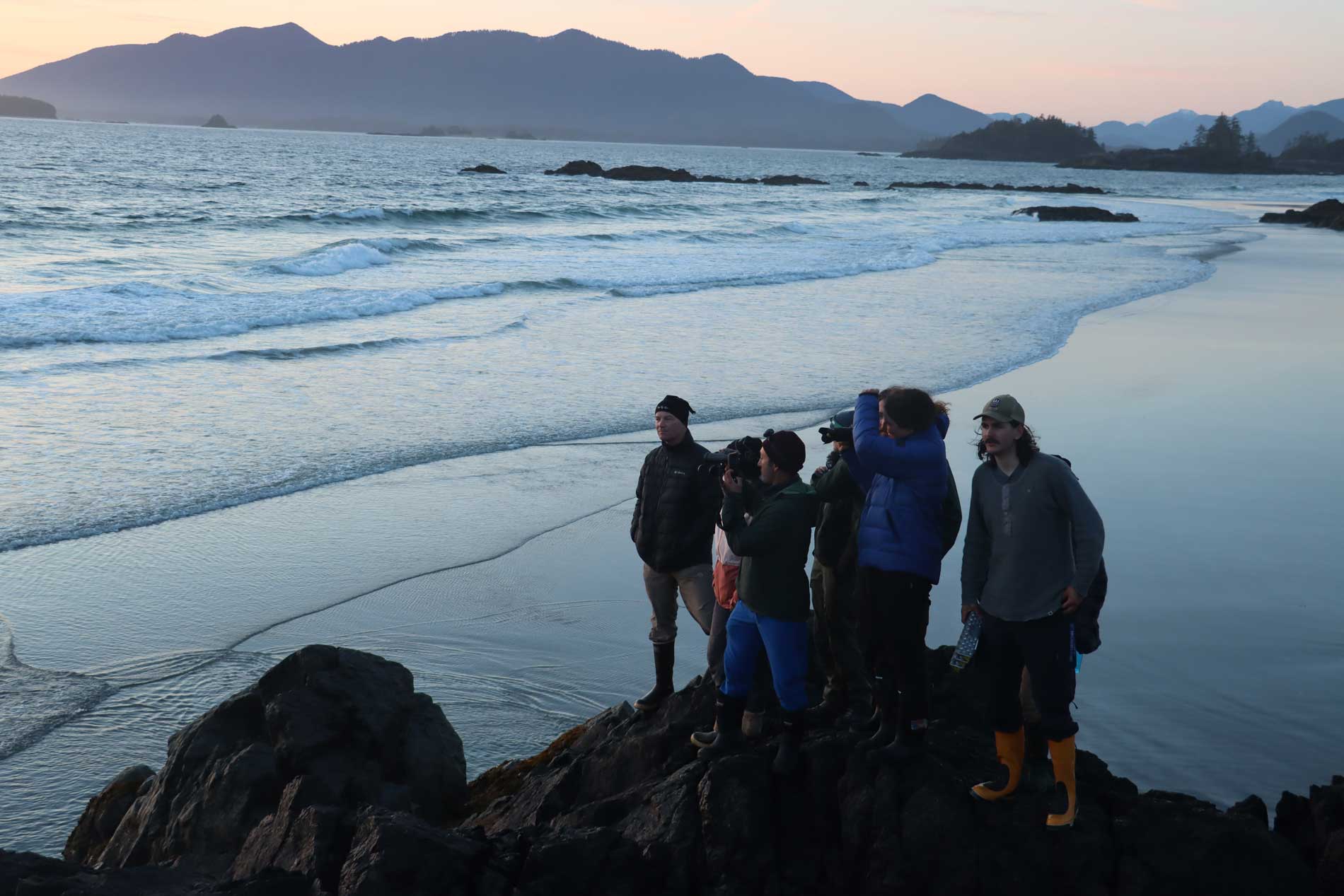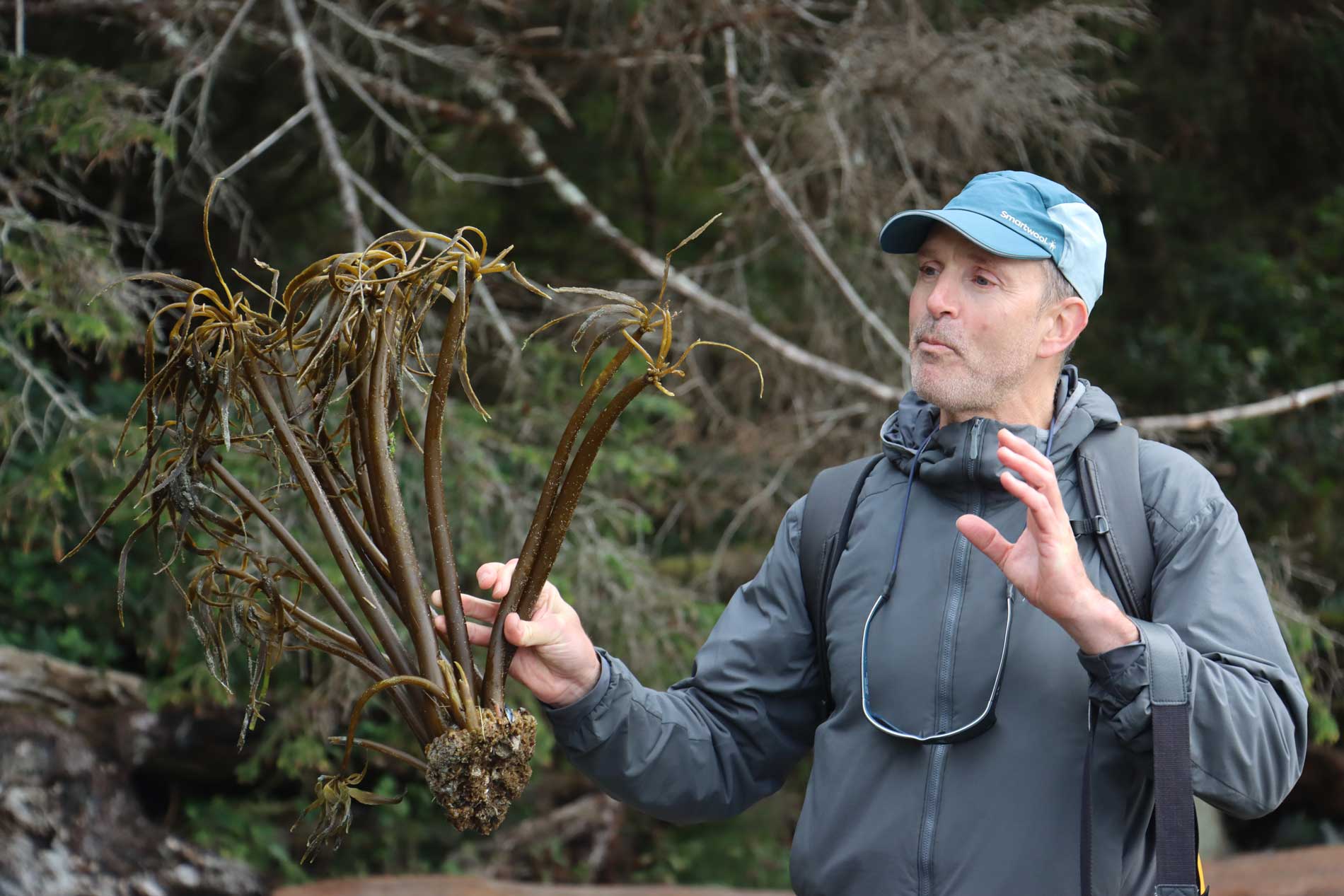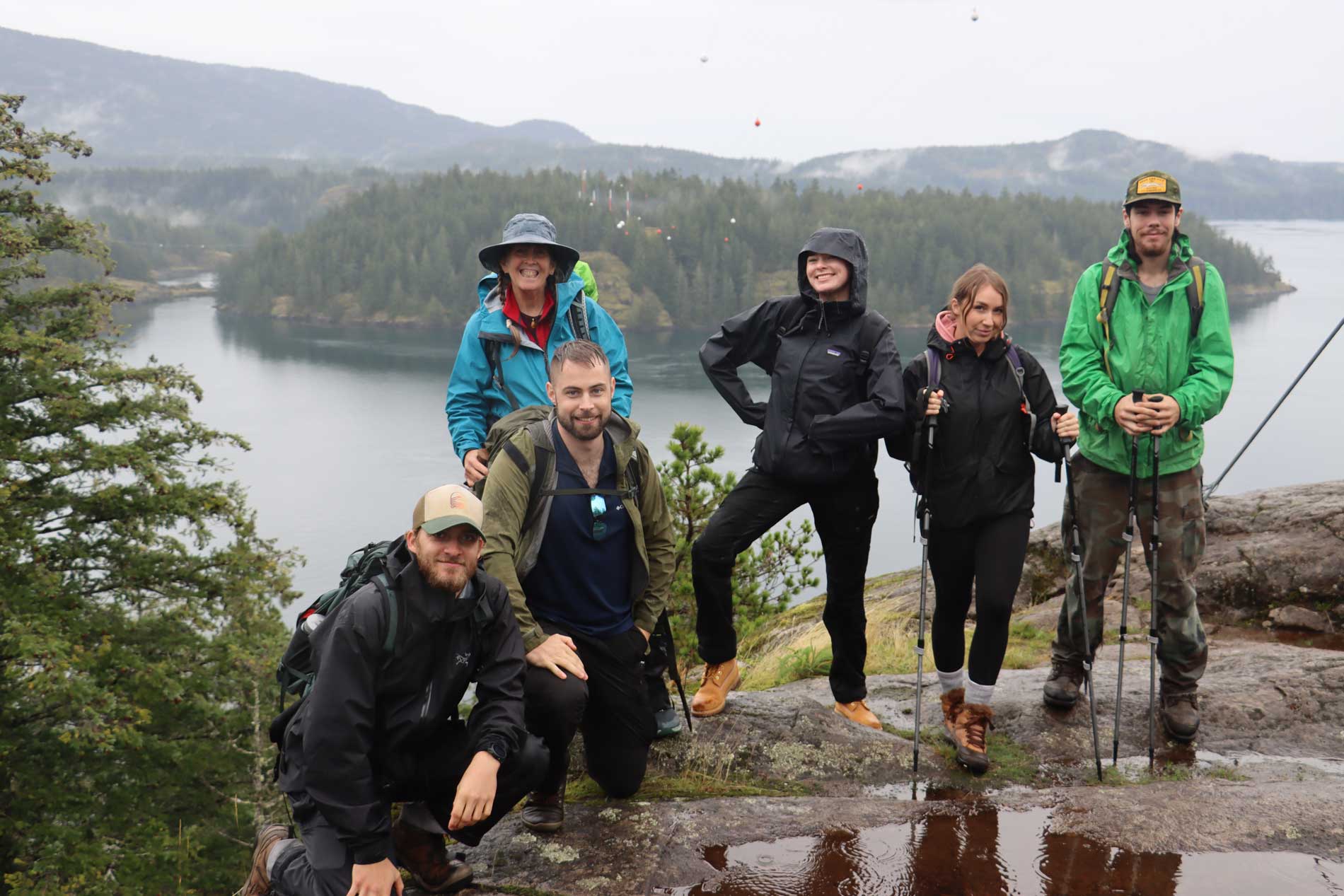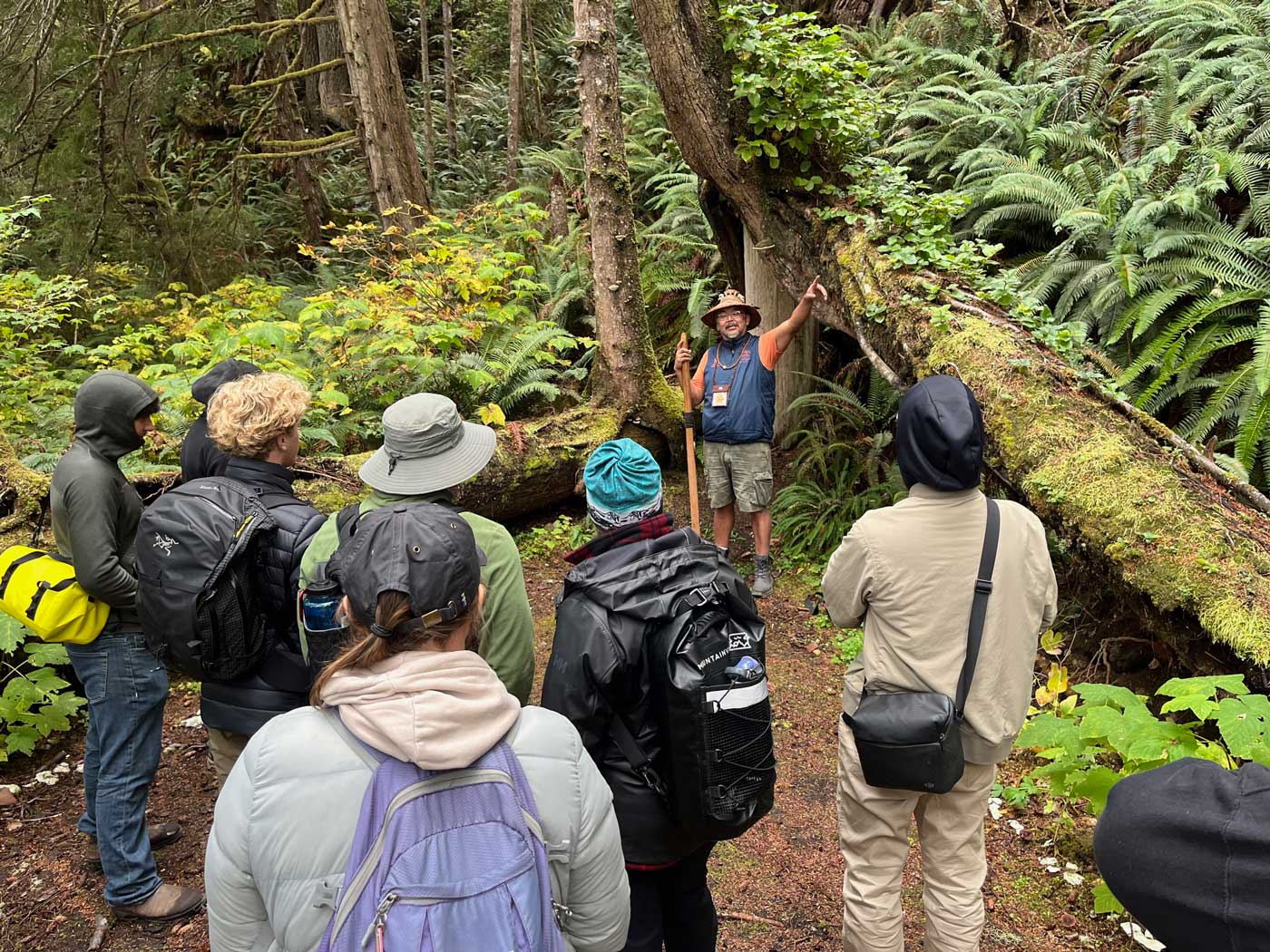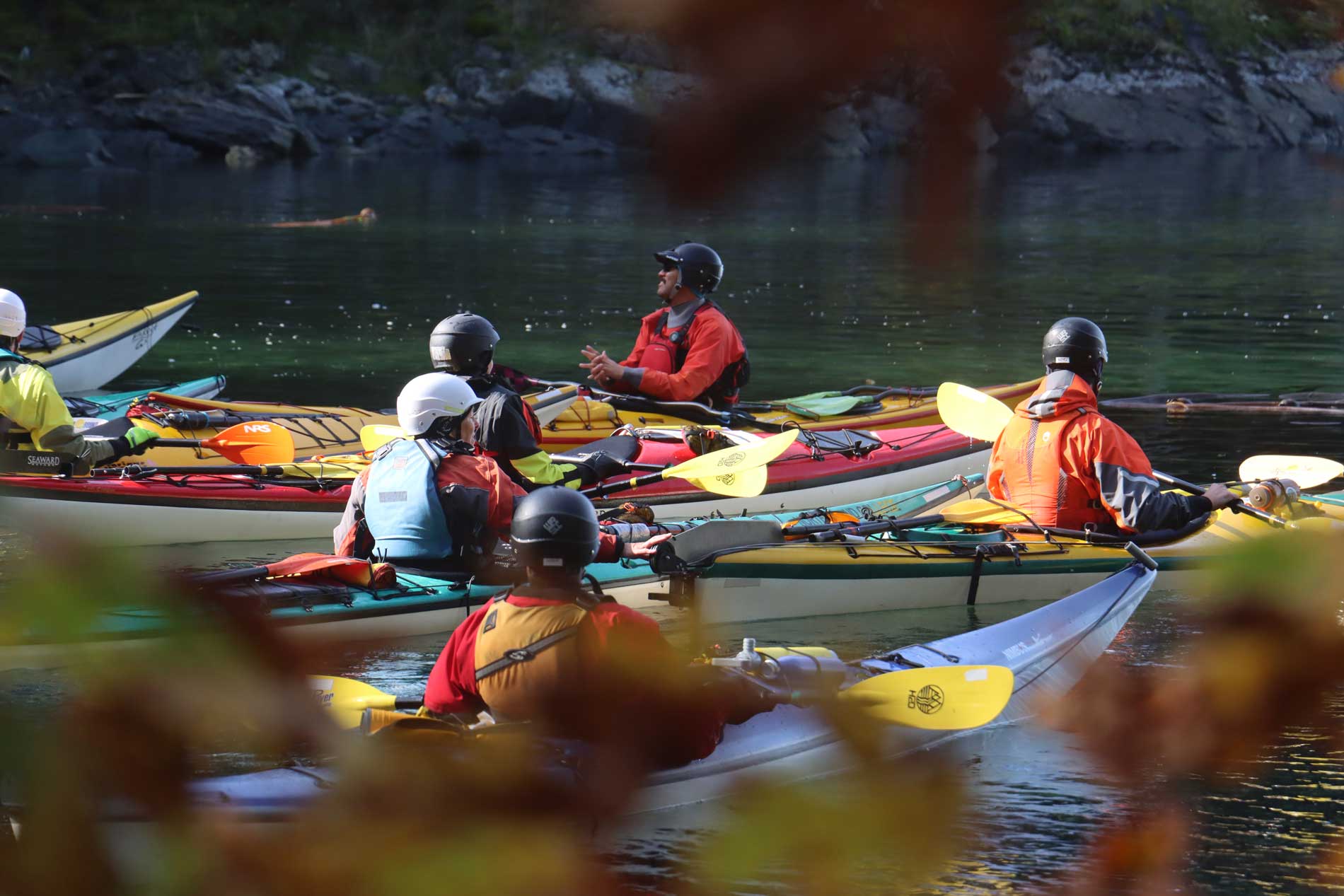Adventure Guiding Certificate
| Certificate | |
| International applicants welcome |
Stay connected
Get program updates and event news straight to your inbox.
Applications open. |
Overview
As a student, you’ll experience a comprehensive view of the adventure guiding industry, focusing on sustainability, ethics and intercultural skills. This includes learning through Indigenous tourism interactions as part of guiding on the coast. Through adventure guiding and outdoor recreation you’ll support the health and well-being of people and places, while working in the heart of BC and Canada’s significant tourism sector.
In addition to your certificate, you can earn:
- Avalanche Canada - Avalanche Skills Training 1
- Basic First Aid (formerly OFA Level 1)
- British Columbia River Outfitters Association - Guide
- CanBoat (CPS) Maritime Radio Certificate - ROC (M)
- Commercial Bear Viewing Association of BC (CBVA) - Level One Guide
- FoodSafe Level 1
- ISPA Competent Crew (Sailing)
- MERS Marine Mammal Naturalist Course
- Paddle Canada Sea Kayak Skills Level 1 and 2
- Raven RSM - Swiftwater Rescue Technician
- Recreational Canoeing Association of BC (RCABC) Lakewater Level 3 and Day Guide or Tripping Level 3; or similar through Paddle Canada Canoeing
- Sea Kayak Guides Alliance of BC Level 1 and Assistant Overnight Guide
- SuperHost Foundations of Service Quality
- Wilderness First Aid and CPR Level ‘C’ (40 hours)
Certifications can vary slightly year-by-year and are based on industry changes and your chosen field skill course electives.
Supplies
Core technical and safety gear is provided through program costs, however students are responsible for buying their own personal items, including:
- Outdoor clothing
- Sleeping bags
- Foul weather gear
- Dry bags
Typical supply costs for the program range from $500 to $3,000.
Careers
Our alumni work as outdoor sport and recreational guides and expedition guides, overseeing activities like whitewater rafting, canoeing, mountain climbing, ski touring, mountaineering and more as part of eco resorts, lodges, adventure tourism companies or as entrepreneurs. For a list of organizations that hire for roles in adventure guiding, please refer to our FAQs.
Costs
Check the table below for estimated costs for the full program.
Curious about funding?
Financial support is available. Learn more about financial aid and awards.
How to apply
Frequently asked questions
We equip you with hands-on skills. in-field experiences and a comprehensive set of certifications and training that would be costly to acquire outside of the program.
Your tuition and lab fees cover many miscellaneous and budgeted expenses, including:
- Multi-day accommodation, van transportation, food expenses, and intensive programming at field trip locations outside of the Comox Valley as part of the core courses.
- All instructional costs and group safety equipment
- Low instructor to student ratios for safety and quality instruction, often 1:3-5 during outdoor adventure activities and field skill courses
- Use of sea kayaks, canoes, sailboats and rafts (plus paddles, PFDs, etc.) on scheduled water-focused outings, and use of technical climbing equipment during rock and mountain-focused training
- Access to two-person tents and tarps if you don’t have your own, and group kitchen equipment (stoves, fuel, pots, utensils, shelter, etc.) on field trips
- Certification and examination fees to many external agencies (sailing or paddlesport associations, Canadian Power Squadron, Red Cross, etc.)
- Admission fees for scheduled course activities (e.g.., at pools, museums and cultural centres, cultural events/tours, interpretive centres, etc.)
Depending on what you already own, you'll may need to spend anywhere from $500 to $3,000 on personal gear, including:
- sleeping bag
- foul weather gear
- outdoor clothing
- wetsuit or drysuit
- neoprene booties and dry bags
All technical gear is supplied for use during the program (kayaks, canoes, rafts, sailboats, paddles, climbing equipment, group tarps, group kitchen equipment, VHF radios, flares, avalanche beacons, first aid supplies, etc.).
A starting wage for a sea kayak guide, for example, could be between $150 to $225/day plus gratuities (and other benefits) with opportunities for advancement each season. Our graduates have found excellent work placements and further employment with adventure tourism industry leaders such as:
- At The Waters Edge Adventures
- Campbell River Whale Watching
- Coast Mountain Expeditions
- Comox Valley Kayaks
- Farewell Harbour Lodge
- Hello Nature Adventure Tours
- Horne Lake Caves
- Kingfisher Wilderness Adventures
- Knight Inlet Lodge
- Maple Leaf Adventures
- Mount Washington Alpine Resort
- Pacific Sounds Lodge
- Paddle West Kayaking
- Remote Passages
- Spirit Bear Lodge
- Spirit of the West Adventures
- Strathcona Park Lodge
- Tofino Sea Kayaking Company
- West Coast Expeditions
- Wildcoast Adventures
- Y Outdoor Centre
Most coastal guiding in BC is seasonal, with summer work in sea kayaking, youth camps, wildlife tours, rafting and adventure parks, plus some shoulder season opportunities in spring and fall. Many guides balance this with winter jobs at ski resorts or other careers like outdoor retail, carpentry and other trades, teaching or photography.
Some take their skills abroad, working in Argentina, Chile, Costa Rica, Mexico, Belize, Tonga, Vietnam, Croatia, Alaska — even the Arctic and Antarctic. If you’re looking for year-round guiding, there are solid opportunities in New Zealand, Latin America and the Caribbean. Speaking another language helps, but passion and training go a long way.
